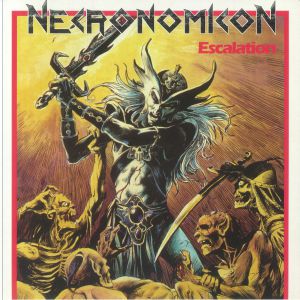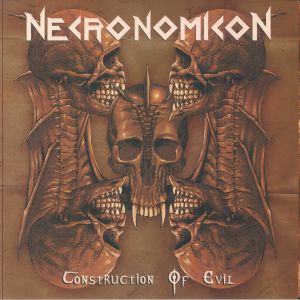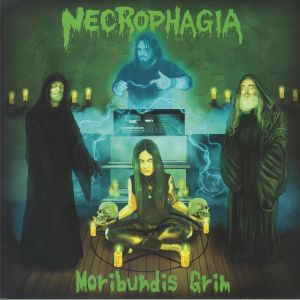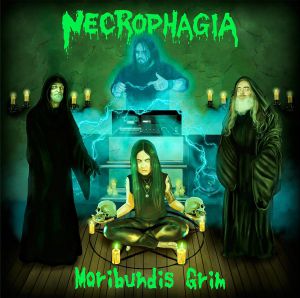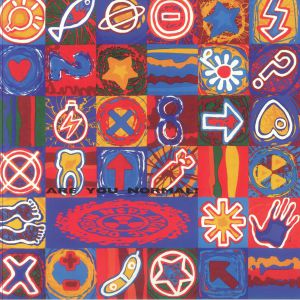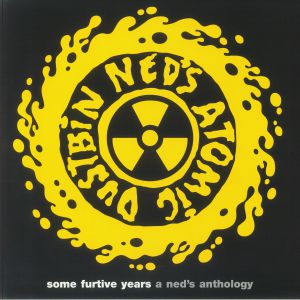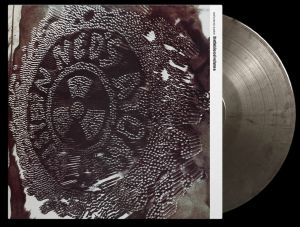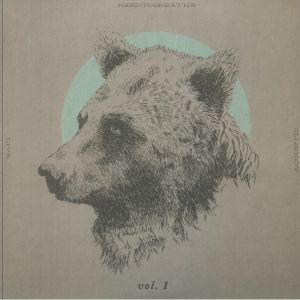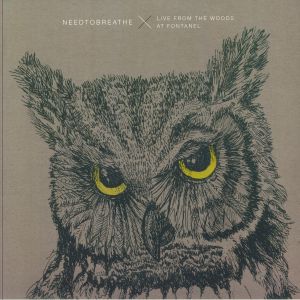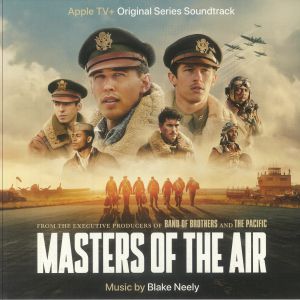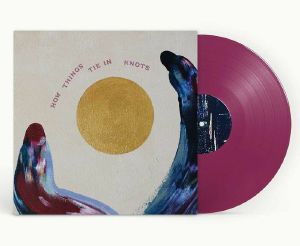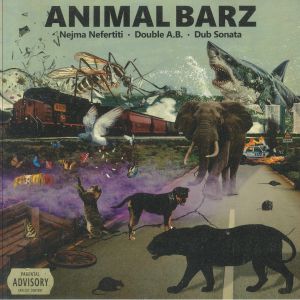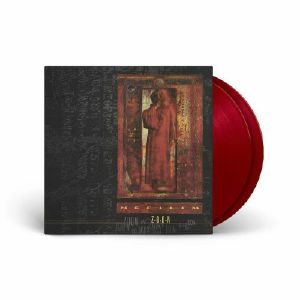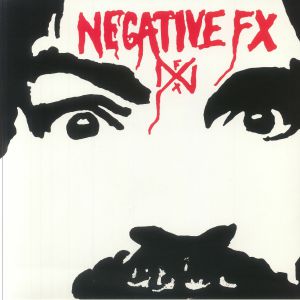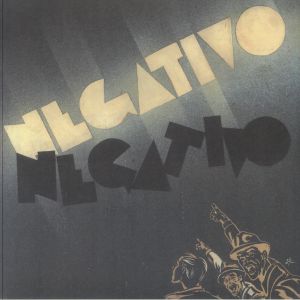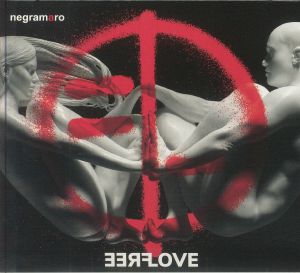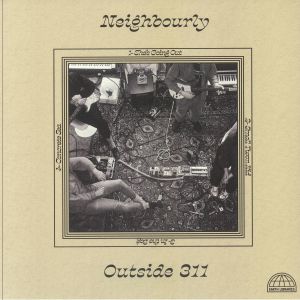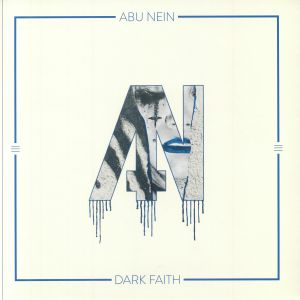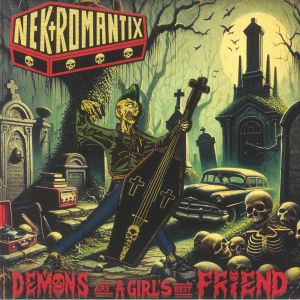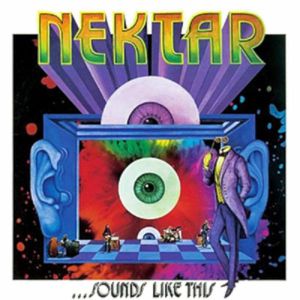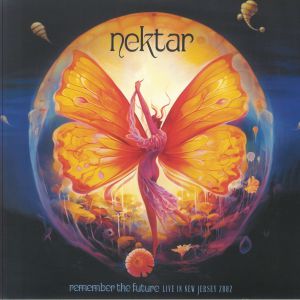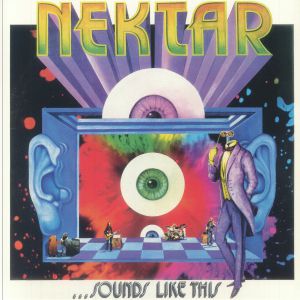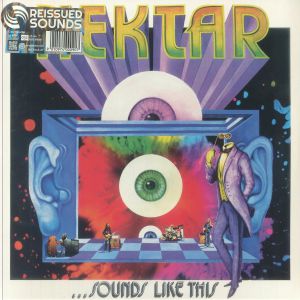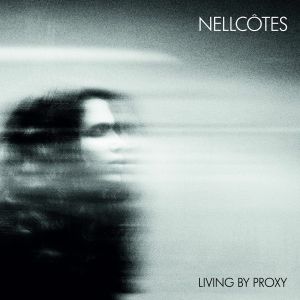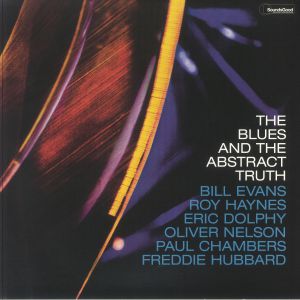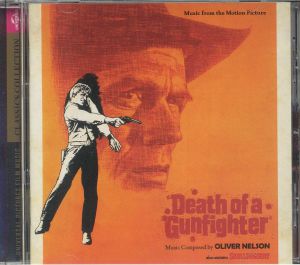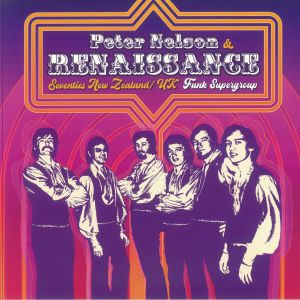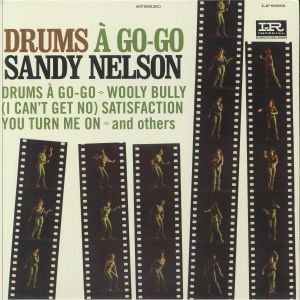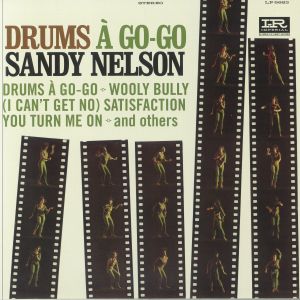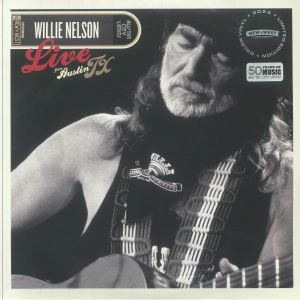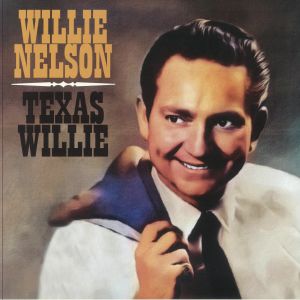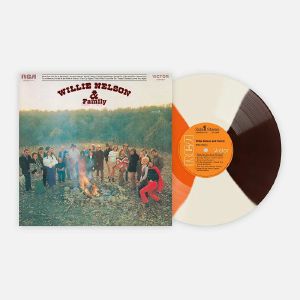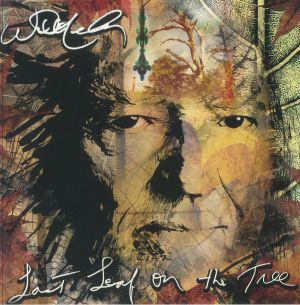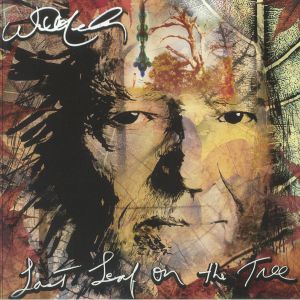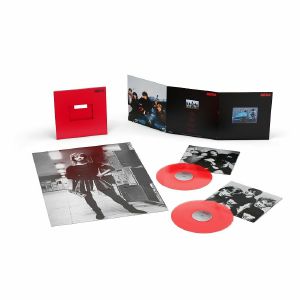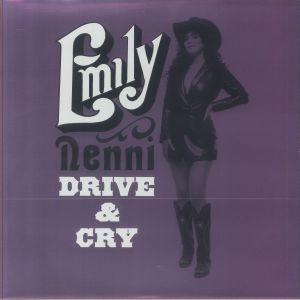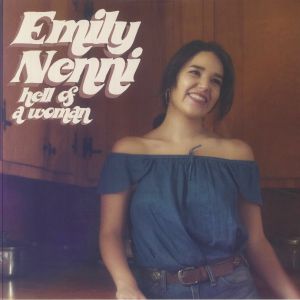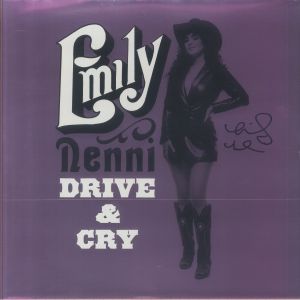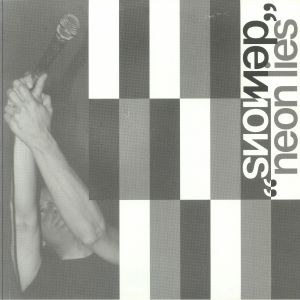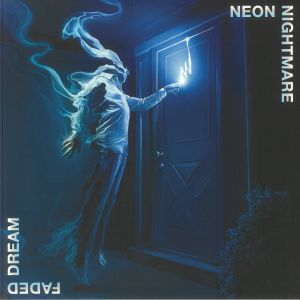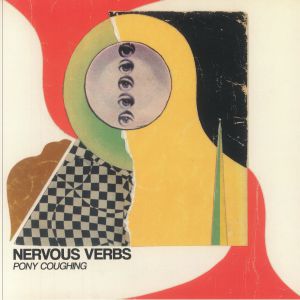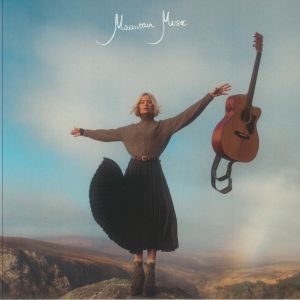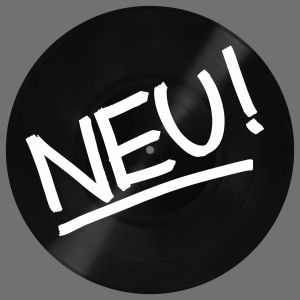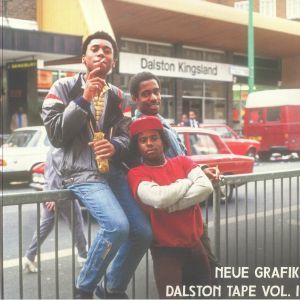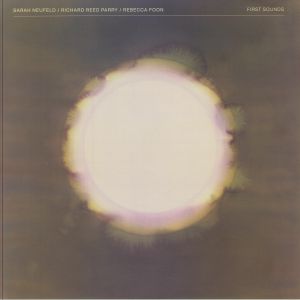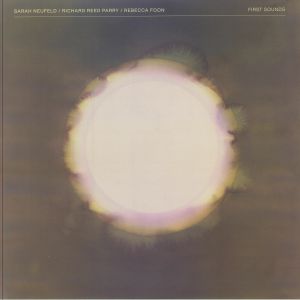Filter
Genre
Stock
Equipment
Release Date
Label
Release Title
Price
Tags
Back catalogue: All genres
Juno's full catalogue of All genres
Alben
Escalation (reissue) (limited transparent yellow & black marbled vinyl LP + poster + insert)
Cat: HRR 433LP3M. Rel: 07 Mar 25
Metal
in stock $35.52
Construction Of Evil (limited yellow grunge marbled vinyl LP in embossed sleeve)
Cat: TMR 037190LP. Rel: 19 Sep 24
Metal
in stock $36.36
in stock $26.64
in stock $24.16
Are You Normal? (reissue) (limited 180 gram audiophile translucent red vinyl LP + insert)
Cat: MOVLP 3329R. Rel: 11 Feb 25
Indie/Alternative
Review: A fantastic new pressing of a band who were an important part of the grebo scene in the late 80s and early 90s. Having earned a loyal fanbase with God Fodder, which is their electronically-tinged grunge and pop-punk leaning debut album, this follow-up showed them buck the trend of the difficult second album and deliver the goods. The chart-bothering single 'Not Sleeping Around' is a banger with Stone Roses-y wah guitars, an infectious vocal melody and urgent, hard-hitting rock structure. The same year this was originally released they headlined the NME stage at Glastonbury and cemented their reputation as one of the best live bands in Britain of that time.
… Read more in stock $34.15
Some Furtive Years: A Ned's Anthology (reissue) (limited numbered 180 gram audiophile yellow 2xLP (side 4 etched) + insert)
Cat: MOVLP 3331C. Rel: 20 Aug 24
Indie/Alternative
Review: Some Furtive Years - A Ned's Anthology is an excellent collection from the 90s Britpop band Ned's Atomic Dustbin, known for their edgy blend of punk and funk-influenced pop songs that impressed the UK fans and beyond from 1991 to 1995. This compilation, assembled with the band's input in 2007, includes 16 of their most beloved tracks, such as 'Grey Cell Green,' 'Kill Your Television,' 'Until You Find Out,' 'Not Sleeping Around,' and 'Cut Up.' Furtive Years effectively highlights the best of Ned's Atomic Dustbin, showcasing the band's high-energy, post-"Madchester" alternative rock sound and proving just how underrated they were. For the first time, Some Furtive Years - A Ned's Anthology is available on vinyl as a limited edition release. This 2LP set is pressed on yellow-colored 180-gram audiophile vinyl with an etched D-side and includes an insert.
… Read more in stock $40.81
Brainbloodvolume (reissue) (limited numbered 180 gram audiophile silver & black marbled vinyl LP + insert)
Cat: MOVLP 3330C. Rel: 30 Jul 24
Indie/Alternative
Review: Ned's Atomic Dustbin's final studio album, Brainbloodvolume, marks a departure from the Stourbridge earlier pop roots, embracing a diverse array of styles and experimental approaches. Released initially in the U.S. in March 1995 before reaching the U.K. in July that year, the album received a mixed reception due to the overwhelming Brit-pop wave at the time. However, it stands out as an ambitious and energetic release, showing the band's evolution with ultramodern production, electronic elements and adventurous sampling.
… Read more in stock $34.70
Acoustic Live Vol 1 (gatefold 2xLP (side 4 laser etched))
Cat: 081007 5114454. Rel: 21 Nov 24
Indie/Alternative
in stock $24.89
Live From The Woods At Fontanel (gatefold ocean blue vinyl 2xLP + insert)
Cat: 081007 5114652. Rel: 21 Nov 24
Indie/Alternative
in stock $33.03
Gespielt von: Juno Recommends Dancehall/Ragga
in stock $30.26
Review: Blake Neely's Masters of the Air is a stellar war score, much like his work for The Pacific and Greyhound. It achieves a near-perfect balance of bold heroism and quiet solemnity, bound together with a memorable main theme in 'Soar'. Neely, who previously worked on The Pacific alongside Hans Zimmer and Geoff Zanelli, has once again captured the raw heroism and terrible horror of WWII. The main theme, introduced in 'Soar (Main Title)', is elegant and evokes flying, though it may take a few listens to fully catch. Highlights include the tense 'Around The Clock', the sorrowful 'Every Second Is A Little Death', and the thunderous 'The Bloody Hundredth'. The score's mix of grand and rousing tracks with quieter, solemn moments, like 'Going Home', makes it a solidly entertaining listen. Fans of Neely's previous work, will find much to appreciate in this well-crafted soundtrack.
… Read more in stock $33.30
How Things Tie In Knots (180 gram transparent purple vinyl LP + insert)
Cat: TAR 160V. Rel: 27 Mar 25
Indie/Alternative
in stock $22.20
in stock $37.75
in stock $39.42
in stock $23.60
in stock $31.37
in stock $23.04
in stock $22.76
Review: After a seven-year hiatus, the Neil Cowley Trio reunites with their latest album, Entity, a testament to the power of human connection in an age dominated by technology. The album marks a poignant return for Cowley, who, after a successful solo career focused on electronica, re-engages with his longtime collaborators, bassist Rex Horan and drummer Evan Jenkins. The recording sessions for Entity were deeply emotional, as Cowley and his bandmates rediscovered the joy and intimacy of making music together. Rejecting pre-recorded synths and drum machines, they embraced the raw, unfiltered interaction that defines their sound. The result is a record that pulsates with genuine human energy, free from the constraints of digital precision and algorithms. Entity captures the essence of the Trio's signature styleidynamic grooves, memorable melodies and a delicate interplay of emotions. With Cowley's virtuosic piano work at the forefront, the album delivers a rich blend of tender moments and energetic bursts. It's a compelling reminder of the beauty in human collaboration and a celebration of the enduring bond between these musical friends.
… Read more in stock $28.60
in stock $24.42
Demons Are A Girl's Best Friend (limited luminous vinyl LP)
Cat: CLE 6103. Rel: 25 Feb 25
Punk/Hardcore
in stock $31.09
Sounds Like This (reissue) (gatefold orange vinyl 2xLP)
Cat: MICR 018. Rel: 13 Mar 25
Progressive Rock
in stock $37.48
Remember The Future: Live In New Jersey 2002 (gatefold "crystal" transluscent blue vinyl 2xLP)
Cat: CLOLP 4716. Rel: 13 Jun 24
Progressive Rock
in stock $48.85
Sounds Like This (reissue) (hand-numbered gatefold yellow & red splattered vinyl 2xLP limited to 100 copies)
Cat: MICR 018UK. Rel: 11 Mar 25
Progressive Rock
in stock $38.86
Sounds Like This (reissue) (numbered gatefold clear & splattered vinyl 2xLP limited to 100 copies)
Cat: MICR 018AT. Rel: 13 Mar 25
Progressive Rock
in stock $48.85
Living By Proxy (numbered lathe cut 10" LP limited to 50 copies)
Cat: SR 022. Rel: 30 Jan 25
Indie/Alternative
in stock $22.20
Wilurarrakutu (LP + insert in spot-varnished sleeve)
Cat: MRI 211LP. Rel: 19 Sep 24
Balearic/Downtempo
Review: Keanu Nelson is a young Aboriginal Australian artist from the remote community of Papunya, northwest of Alice Springs. He paints in the Western Desert movement style and, on this album, sings poems from his notebook over minimalist Casio beats programmed by Yuta Matsumura. His debut album, which came on the Altered States label, now gets re-issued on a larger scale. Inspired by local gospel and reggae beats, Keanu's songs explore family, home, and loss and he sings in a blend of both Papunya Luritja and English. The result is a haunting, original sound that is part Francis Bebey, part Suicide, and one that feels both familiar and groundbreaking.
… Read moreGespielt von: Marco Gallerani, Juno Recommends Downtempo
in stock $28.32
The Blues & The Abstract Truth (reissue) (limited gatefold 180 gram audiophile vinyl LP)
Cat: 66422. Rel: 22 Jul 24
Jazz
in stock $21.93
Cat: LLLCD 1642. Rel: 21 May 24
Soundtracks
Review: Before he passed away in 1975 aged just 43, jazz musician and composer Oliver Nelson created a swathe of scores for film and TV, most notably Ironside and The Six Million Dollar man. This limited-edition release, the 19th in the 'Universal Pictures Film Music Classics Collection' brings two of Nelson's big-screen scores to CD for the first time. Tracks one to 18 form an expanded soundtrack to Western flick Death of a Gunfighter, a score in which Nelson focused on elegiac strings, melancholic motifs, suspenseful interludes and sweeping orchestration. The remainder of the CD presents the soundtrack to Skullduggery, a largely forgotten 'jungle adventure'. Nelson's music for this is more dashing, daring, upbeat and expansive, with extensive use of densely layered, tribal style percussion.
… Read more in stock $43.29
in stock $47.74
in stock $28.32
in stock $29.16
in stock $34.70
in stock $25.98
Willie Nelson & Family (reissue) (limited 180 gram 'campfire quad' vinyl LP + booklet with obi-strip)
Cat: VMPCW 034. Rel: 01 Jan 90
Folk/Americana
in stock $32.19
Last Leaf Of The Tree (translucent amber swirl vinyl 2xLP + insert)
Cat: 198028 36881. Rel: 01 Nov 24
Folk/Americana
in stock $31.65
Last Leaf On The Tree (transparent black & amber swirl vinyl 2XLP)
Cat: SONY 198028368810. Rel: 30 Oct 24
Folk/Americana
in stock $34.42
Nena (trifold translucent red vinyl 2xLP + poster in spot-varnished die-cut sleeve)
Cat: 964058 681. Rel: 31 Oct 24
Indie/Alternative
Review: Nena's second album, released in 1984 and now reissued on striking red vinyl, was a shift from the assertive sound of their debut, presenting a more romantic and introspective approach. The album cover, featuring a shadowy band photo against a black backdrop and a simple question mark as its title, hints at its deeper emotional themes. While the opening track 'Rette Mich' carries forward the energy of their first album, the overall mood embraces love and longing, with Nena's voice revealing a touching vulnerability. The music leans toward 70s Baroque rock, combined with the catchy simplicity of 80s pop, as all band members contribute to the songwriting, ensuring a rich tapestry of melodic sophistication. The title track, initially released as a mellow single, captures the emotional complexity of desire and resonated deeply with fans, further solidifying Nena's status in the German pop scene. Following the unexpected success of '99 Luftballons', which became a worldwide hit, this album helped elevate Nena and her band beyond the constraints of the Neue Deutsche Welle movement, marking them as a unique force in pop music history. Its timeless appeal ensures that Nena remains a classic in German music.
… Read more in stock $41.92
in stock $26.09
in stock $27.49
Drive & Cry (limited translucent pink vinyl LP in autographed sleeve (indie exclusive))
Cat: LPNW 5809IE. Rel: 02 May 24
Folk/Americana
in stock $34.70
in stock $24.70
in stock $39.42
in stock $23.60
Mountain Music (Mountain View Beach Edition) (blue eco vinyl LP)
Cat: ATR 015LP. Rel: 26 Sep 24
Indie/Alternative
in stock $28.60
in stock $27.76
Review: Neu! 75 was the third and final studio album from Klaus Dinger and Michael Rother, and many years on it stands proud as a great piece of electronic rock history. Released in, you guessed it, 1975, the album's signature insistent rhythms, phased guitars and propulsive drums continue to sound fresh and retain a vitality that feels futuristic even decades later. This official reissue is a great way to get back into the raw energy and precision that made Neu! 75 so influential with their groundbreaking fusion of motorik beats and experimental soundscapes. It was their finest work, frankly.
… Read more in stock $30.26
Review: After years spent working alongside a talented pool of jazz musicians as the Neue Grafik Ensemble, Fred N'Thepe has decided to go solo for the first time this decade. Dalston Tapes Vol 1 is, according to Rhythm Section International, a conscious attempt by the artists to return to his beat-making roots. It's an album, then, rooted in hip-hop mixtape culture, where vocal numbers featuring guest MCs sit side by side with rap-free "beats" - lusciously and impeccably crafted instrumentals in which warming bass guitar lines, deep electronic sub-bass, sparkling electronic motifs and choice samples cluster around loosely swung, MPC-driven beat patterns. It's a great collection all told, with nods towards club-ready broken beat and deep house sitting side by side with Dilla-esque workouts and references towards London's vibrant hip-hop and grime underground.
… Read moreGespielt von: Replika | Common Mode, Bryan Hervieu
in stock $23.31
First Sounds (limited cream vinyl 2xLP (indie exclusive))
Cat: TPLP 1936LTD. Rel: 25 Oct 24
Modern Classical
in stock $31.09
in stock $22.40

 USD
USD






